80 F. high in the Twin Cities Monday.
74 F. average high on June 2.
67 F. high on June 2, 2013.
40 mph wind gust at MSP International Airport at 4:53 PM Monday.
Situational Awareness
"Didn't
you invent Doppler?" I get that a lot. No I didn't, but previous
companies created 3-D TV weather graphics and Doppler on a cell phone,
inventions I still use every day. "What's next Paul?" a service rep at
St. Boni Motor Sports asked me on Saturday.
Great question.
We're
still scratching the surface with personalization. Think "Siri", but
tailored for your calendar, commute and outdoor needs. Everyone sees
something unique, personalized weather, updated hourly, 24/7.
On
Saturday my oldest son was taking a dip at Big Island when strong
T-storms arrived. "Why didn't you check the radar app on your phone?" I
asked. "I was in the lake Dad." Did you check the sky when you came up
for air? There are hundreds of apps to choose from now; a great source
of storm info when you're away from your TV or PC.
Lukewarm sun and low humidity today gives way to Wednesday showers, a potential tornado outbreak today as close as Iowa.
We're
stuck in a very wet pattern; more storms Thursday - again Saturday,
then a cleansing breath of cooler, drier, Canadian air on Sunday.
Enjoy a long spell of 70s; we heat up again late next week.
Finally, 2014 precipitation is now 7 inches above average in the metro.
Some Streams Near Flood Stage. NOAA's Advanced Hydrological Prediction Service has an
interactive map
that plots river stages for locations around the Twin Cities metro.
Many streams are out of their banks, but widespread/severe river
flooding is not expected right now - unless we get more heavy and
prolonged rains.
* Flooding is possible on the Mississippi River at Wabasha. Details from
NOAA.
Mississippi River at St. Paul.
Click here
to see the latest crest forecast. Right now the river is forecast to
crest about 1 1/2 feet below flood stage in St. Paul by Saturday.
Storms Pound Twin Cities, Prompt Flood Warnings, Cancel Marathon. I might avoid swimming in Lake Minnetonka until further notice.
The Star Tribune has a video and more details on the weekend flooding: "...
Untreated
sewage from Mound was released at six sites near local lakes Sunday
after the heavy rains threatened to force backed-up wastewater into the
basements of about 1,000 homes. City officials said the sanitary sewer
system was “overwhelmed” by the amount of rain and it received
permission from the Minnesota Pollution Control Agency to bypass the
untreated sewage until the wastewater collection system can handle the
volume. Sewage will make its way into Lake Minnetonka,
Lake Dutch and Lake Langdon, where it will be greatly diluted, but
officials warned that the level of E. coli bacteria will increase and
could cause illness..."
Significant Tornado Outbreak Potential.
SPC
has issued a moderate risk of severe storms, including large hail,
violent straight-line winds, and a few large, long-track tornadoes later
today. The greatest risk is from Nebraska into Iowa and northern
Missouri. Metro areas in the moderate risk include Omaha, Lincoln,
Kansas City and Des Moines. Watch for possible PDS Tornado Watches later
today; if confirmed tornadoes approach metro areas Tornado Emergencies
may be issued.
7-Day Rainfall.
NOAA models print out as much as 3-7" of rain from the central Plains
into the Midwest between today and next Tuesday, June 10. Flooding rains
for the central USA, while drought intensifies from California into the
Southwest.
84 Hour Future Radar.
NOAA's NAM model shows today's severe storm outbreak from Nebraska into
Iowa and northern Missouri, brushing southern Minnesota with showers
and T-storms (probably not severe) late tonight into Wednesday before
pushing into New England Thursday. Loop: HAMweather.
GFS Not Giving Up on Tropical System Early Next Week.
Although the ECMWF has yet to come around to this solution, NOAA's GFS
model continues to spin up a tropical wave, depression or even a
tropical storm capable of brushing south Florida next Tuesday, June 10.
Map above: WSI.
Hurricane Guide 2014.
The Miami Herald has some terrific tips, reminders, links and other resources focused on hurricane preparation:
Read more here: http://www.miamiherald.com/2014/06/01/4151604/hurricane-guide-2014-stocking.html#storylink=cpy
File photo of Hurricane Katrina courtesy of NOAA.
Female-Named Hurricanes Kill More Than Male Hurricanes Because People Don't Respect Them, Study Finds. No, you can't make this stuff up. You would think Katrina and Sandy would have had an impact. Here's an excerpt from
The Capital Weather Gang: "
People
don’t take hurricanes as seriously if they have a feminine name and the
consequences are deadly, finds a new groundbreaking study. Storms with
female names have historically been significantly more deadly because
people neither consider them as risky nor take the same precautions, the
study published in the Proceedings of the National Academy of Sciences
concludes. Researchers at the University of Illinois and Arizona State
University examined six decades of hurricane death rates according to
gender, spanning 1950 and 2012. Of the 47 most damaging hurricanes,
the male-named hurricane produced an average of 23 deaths compared to 45
deaths for female-named hurricanes, or almost double the number of
fatalities..."
Hurricane Irene imagery courtesy of NOAA.
Drought Drive Drilling Frenzy For Groundwater in California. One big question: how long can water in underground aquifers last and how deep can they drill?
KQED has the story; here's an excerpt: "...
California’s
aquifers supply 40 percent of the state’s water in normal years but in
this drought year, it could be closer to 65 percent. That makes it our
biggest water reserve –- bigger than the Sierra snowpack. Scientists are
already sounding alarm bells about pumping too much groundwater. State
water managers estimate that water tables in some parts of the Valley
have dropped 100 feet below historical lows. As water levels sink, the land can sink, too — in some places by about 100 feet per year. Groundwater pumping could also put more stress on the San Andreas Fault..."
Photo credit above: "
Juan de La Cruz operates a drilling rig probing for groundwater 2,500 feet beneath Fresno County." (Sasha Khokha/KQED).
 Australia Experiences Its Hottest Two Years On Record
Australia Experiences Its Hottest Two Years On Record.
The Guardian has details, here's a clip: "
Australia
has experienced its hottest two years on record and high temperatures
are set to continue through winter in a clear sign of climate change, a
report warns. May 2012 to April 2014 was the hottest 24-month period
ever recorded in Australia,
but that is likely to be eclipsed by the two years between June 2012
and May 2014, according to the Climate Commission's latest report,
Abnormal Autumn..."
Photo credit above: "
The average minimum temperature in Australia was 1.31C above normal." Photograph: Tracey Nearmy/AAP.
Clear Evidence That Costco and Walmart Live In Totally Different Worlds. The polar vortex apparently hurt Walmart's numbers, so then why did Costco post a big profit? Here's a clip from
Huffington Post: "...
It’s true that the weather was particularly unbearable this past winter (polar vortex anyone?), and many economists have said the super-cold and snow was the main reason the economy shrank in the first quarter for the first time in three years. But a handful of popular outlets, like Costco and Chipotle,
managed to handle the winter pretty well. That suggests there's more
going on here than meteorology. Costco's winter survival is a hint that
maybe the company’s no-frills model -- which includes almost no
advertising, paying workers decently and courting customer loyalty --
may just be a better way to get customers to buy stuff..."
What's The Difference Between "Mostly Sunny" and "Partly Cloudy?"
They mean the same thing, but partly cloudy actually implies more
sunshine than partly sunny. Go figure. Yes, communicating the weather
can be just as big a challenge as predicting the weather. Here's a clip
from
Mental Floss: "...
The
difference in terms is a matter of how much cloud cover there is.
Interestingly, partly sunny and partly cloudy mean the exact same
thing—but partly cloudy is the correct term for nighttime conditions
because you can’t see the sun..."
Suffering From "Surveillance Anxiety" Yet?
All that stuff you're posting, tweeting, e-mailing and logging -
concerned it may come back to haunt you? You're not alone. Here's an
excerpt of a thoughtful piece from
The New Inquiry: "...
Already,
the lived reality of big data is suffused with a kind of surveillant
anxiety, the fear that all the data we are shedding every day is too
revealing of our intimate selves but may also misrepresent us. Like a
fluorescent light in a dark corridor, it can both show too much and not
enough. Anxiety, as Sianne Ngai has written, has a temporality that is
future oriented: it is an expectation emotion, and the expectation is
generally of risk, exposure, and failure. British group Plan C in their
blistering manifesto “We Are All Very Anxious”
argue that anxiety is the dominant affect of our current phase of
capitalism, engendering political hopelessness, insecurity, and social
separation..."
Answering the Phone.
I thought this was interesting, a peek into the psyche of people around
the world, based on how they answer the phone? This clip is courtesy of
an e-mail that went out Sunday evening from Peter Kennedy at
devotional.com:
"...
When
Americans or the British answer the telephone, most of them simply say,
"Hello." Responses are a bit different in other countries:
- Germans tend to answer the phone by barking their last names such as "Schmidt" or "Mueller"
- In Denmark, the Danes will answer with both their first and last names.
- The curious French say, "Hello, who’s on the line?"
- Italians greet callers with "Ready" upon which the caller demands, "Who's speaking?"
- The Spanish give the command, "Speak!"
- In Greece, the people answer “Please”
- Those living in Zimbabwe answer by giving their telephone number and then say hello such as “8675309 Hello”
- The Chinese proclaim, "Hey, hey, who are you?"
- In Mexico, they usually answer "Bueno," which means "Good" or "Well."
- In the Arab world, many answer the phone "May your morning be good."
- Russians often say, "I’m listening..."
Why You Hate Work.
Being connected 24/7 comes with a price, and work-satisfaction
continues to decline across the board, it seems. There must be a better
way to get stuff done. Here's a clip from an interesting essay at
The New York Times:
"
The way we’re working isn’t working. Even if you’re lucky enough to
have a job, you’re probably not very excited to get to the office in the
morning, you don’t feel much appreciated while you’re there, you find
it difficult to get your most important work accomplished, amid all the
distractions, and you don’t believe that what you’re doing makes much of
a difference anyway. By the time you get home, you’re pretty much
running on empty, and yet still answering emails until you fall asleep.
Increasingly, this experience is common not just to middle managers, but
also to top executives..."
Do You Suffer From "Tattoo Regret"? Tell me about it. I'm still trying to get an enormous Al Roker tattoo off my back. Seemed like a good idea at the time.
Bloomberg has the story about an up and coming business sector: tattoo removal; here's a clip: "...
One in five U.S. adults has a tattoo, according to a 2012 online survey of 2,016 Americans by the Harris Poll.
That’s up from 16 percent in 2008. Many may end up changing their mind.
Thirty-seven percent of people with inked skin regretted it after about
14 years, according to a survey of 580 people in the U.K. published in a
letter
to the British Journal of Dermatology last December. “Tattoo-regret
seems to take about 10 years to set in and, since tattoos were widely
popular in the early 2000s and still are today, my suspicion is that we
are only seeing the tip of the iceberg,” said Will Kirby, a
dermatologist and medical director at Dr. Tattoff Inc., which runs a
10-store chain of tattoo-removal centers in the U.S..." (Image above:
tattoofunny.com).
TODAY: Blue sky, less humidity and less wind. Dew point: 53. Winds: W 10. High: 76
TUESDAY NIGHT: Clouds increase, chance of showers, especially south/west of MSP. Low: 59
WEDNESDAY: Sun north, rain far southern MN. High: 72
THURSDAY: Some sun, few PM T-storms possible. Wake-up: 58. High: 78
FRIDAY: Partly sunny, late thunder up north. Wake-up: 60. High: 81
SATURDAY: Humid and unsettled, T-storms likely. Wake-up: 63. High: 76
SUNDAY: Clearing, cooler, less humid. Wake-up: 58. High: 73
MONDAY: Sunny start - clouds, storms late. Wake-up: 56. High: 75
* Photo credit above: Daniel Bovitz.
Climate Stories...
"
The
only thing we can be sure of about the future is that it will be
absolutely fantastic. So if what I say now seems to you to be very
reasonable, then I have failed completely. Only if what I tell you
appears absolutely unbelievable, have we any chance of visualizing the
future as it really will happen."
- Arthur C. Clarke
EPA: Global Warming Here and Now.
U.S. News has a summary of how warming has gone from theory to reality; here's an excerpt: "
Among the findings:
- Average temperatures have risen across the continental U.S. since 1901.
- Between
2000 and 2013, every part of the Southwest felt higher than average
temperatures that exceeded the long-term average dating to 1895.
- Seven of the top-10 hottest years on record in the Lower 48 have occurred since 1998.
- Nine of the 10 largest wildfires in terms of acres burned have occurred since 2000.
- Water levels in most of the Great Lakes have fallen.
- Tropical storm activity in the Gulf of Mexico, Caribbean and Atlantic Ocean has increased over the past two decades..."
Graphic credit above: "
Average temperatures have risen across the U.S. since 1901."
Speech: Administrator McCarthy, Remarks Announcing Clean Power Plan, As Prepared. Here is the introduction to a speech made yesterday by EPA Administrator Gina McCarthy, courtesy of
EPA: "
About
a month ago, I took a trip to the Cleveland Clinic. I met a lot of
great people, but one stood out—even if he needed to stand on a chair to
do it. Parker Frey is 10 years old. He’s struggled with severe asthma
all his life. His mom said despite his challenges, Parker’s a tough,
active kid—and a stellar hockey player. But sometimes, she says, the air
is too dangerous for him to play outside. In the United States of
America, no parent should ever have that worry. That’s why EPA exists.
Our job, directed by our laws, reaffirmed by our courts, is to protect
public health and the environment. Climate change, fueled by carbon
pollution, supercharges risks not just to our health, but to our
communities, our economy, and our way of life. That’s why EPA is
delivering on a vital piece of President Obama's Climate Action Plan..."
Experts: Obama's Carbon Emissions Push Could Close Hundreds of Coal-Fired Power Plants.
The Dallas Morning News has a recap - here's a clip: "...
The
regulation takes aim at the largest source of carbon pollution in the
U.S., the nation’s more than 600 coal-fired power plants. If it
withstands an expected onslaught of legal and legislative attacks,
experts say, it could shutter hundreds of the plants and also lead, over
the course of decades, to systemic changes in the American electricity
industry, including transformations in how power is generated and used.
It is also likely to stand as President Barack Obama’s last chance to
substantially shape domestic policy and as a defining element of his
legacy. The president, who failed to push a sweeping climate change bill
through Congress in his first term, is now acting on his own by using
his executive authority under the 1970 Clean Air Act to issue the
regulation..."
New Carbon Rules The Next Step in Obama's War on Coal. Time Magazine has more insight into what's really going on - here's an excerpt: "...
In
the Obama era, utilities have already retired or announced the
retirement of nearly one third of the nation’s coal plants, eliminating
about one fifth of the nation’s coal generation capacity. The surviving
coal plants have faced steadily increasing environmental compliance
costs, and cheap natural gas has stolen a big chunk of their market
share. Gas prices have crept up a bit in the last year, which has slowed
the decline in coal generation, but with U.S. electricity use now
virtually flat, nobody expects a coal renaissance. In fact, after a huge
boost from the Obama stimulus bill, wind and solar plants
are getting cheap, too, and they’re increasingly viable replacements
for coal, providing 95 percent of the new capacity added in the first
quarter of 2014..."
 Will New Climate Regulations Destroy The Economy?
Will New Climate Regulations Destroy The Economy? Author Peter Gleick responds at
Huffington Post: "
No.
On the contrary, they might just save it by helping stimulate new
technologies and industries and by reducing the risks of climate
disruption. There is a long history of claims that new rules to protect
the environment or human health will seriously harm the United States
economy. These claims are political fodder, they are provocative, and
they are always wrong. In fact, the evidence shows the opposite:
environmental regulations consistently produce enormous net benefits to
the economy and to human health. In 2008, for example, the United
States' environmental technologies and services industry supported 1.7
million jobs. The industry at that time generated approximately $300
billion in revenues and exported goods and services worth $44 billion..."
The Cost of Gambling on Climate Change.
I thought the medical analogy was interesting, and probably fitting,
under the circumstances. Here's an excerpt of an Op-Ed at
newsobserver.com: "...
There
is an analogy in medicine: It is often obvious when someone’s health
has deteriorated, but identifying an underlying cause of the observed
symptoms is not always straightforward. Yet when multiple lines of
evidence and the collective judgment of experts suggest a course of
action, allowing a patient to suffer by doing nothing, even if action is
expensive, becomes unconscionable. For policymakers, the most important
question is: What are the consequences of being wrong? If one believes
that human activity does not cause climate changeand that mitigation
efforts would be an expensive, unnecessary drain on the economy, being
wrong means we will have lost an opportunity to reduce or prevent a
profound and irreversible change to the planet..."

Is Global Warming Real? Most Americans Say Yes.
But the majority of us are still reacting to short-term changes in
weather, especially temperature, not longer-term climate trends or
extreme weather. Here's an excerpt from
The New York Times: "...
Rather,
they found that opinion about global warming seemed to fluctuate with
temperature changes. Although the beliefs of people who trust natural
scientists remain steady over time, climate beliefs among the one-third
of Americans who don’t trust natural scientists are influenced by the
prior year’s average world temperature. “Following record-high
temperature years, low-trust people are more likely to believe that the
world has been warming,” Mr. Krosnick said. “Extreme weather events,
however, have not had notable impact on public judgments of the
existence or the seriousness of global warming...”
Graphic credit above: Stanford National Global Warming Poll.
New Video: Meltwater Pulse B.
What's happening in Antarctic with warming ocean currents melting some
of the ice sheet may not show up on a beach near you this year, but the
rate of future melting and sea level rise is still largely unknown.
Here's a video and story from
Climate Denial Crock of the Week: "...
The
research also provides the first solid evidence that the Antarctic Ice
Sheet contributed to what is known as meltwater pulse 1A, a period of
very rapid sea level rise that began some 14,500 years ago, according to
Peter Clark, an Oregon State University paleoclimatologist and
co-author on the study. The largest of the eight episodic pulses
outlined in the new Nature study coincides with meltwater pulse 1A.
“During that time, the sea level on a global basis rose about 50 feet in
just 350 years — or about 20 times faster than sea level rise over the
last century,” noted Clark, a professor in Oregon State’s College of
Earth, Ocean, and Atmospheric Sciences. “We don’t yet know what
triggered these eight episodes or pulses, but it appears that once the
melting of the ice sheet began it was amplified by physical processes...”
Climate Change Skepticism Could Risk GOP's Future in California. Here's an excerpt of a story at
The Miami Herald: "...
The
GOP has already found itself out of step with shifting public opinion
on gay marriage and immigration. Some party leaders and political
observers warn that it risks further damaging its future prospects if
Republicans fail to embrace the widely accepted science behind climate
change. Nowhere is the problem more evident than it is in California,
where Republicans once championed environmental policies. Now those
voices struggle to be heard as the party plays to its conservative base.
“I say to those who don’t like the science - take a look up north,”
said George P. Shultz, who was President Ronald Reagan’s secretary of
state. “There’s a new ocean being created that wasn’t there before...”
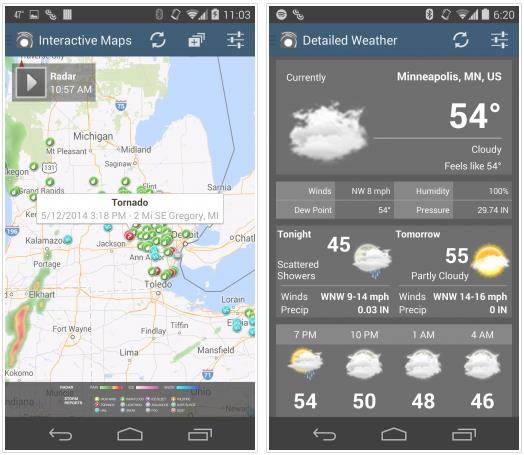

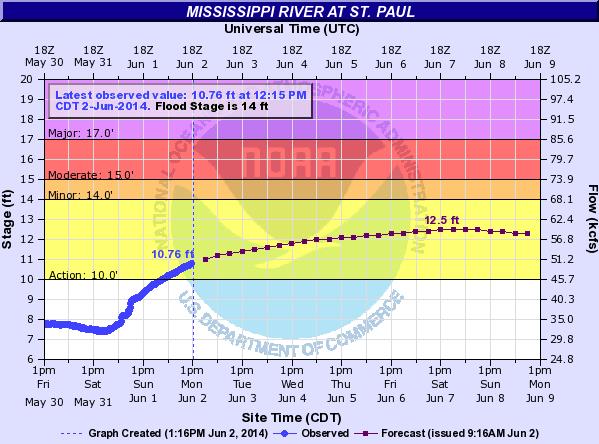

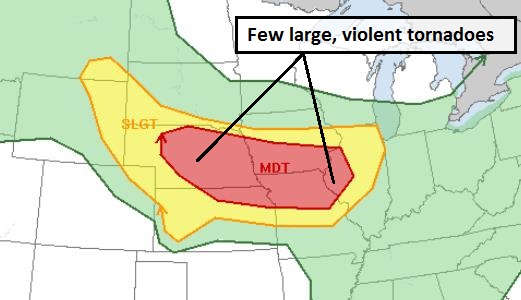
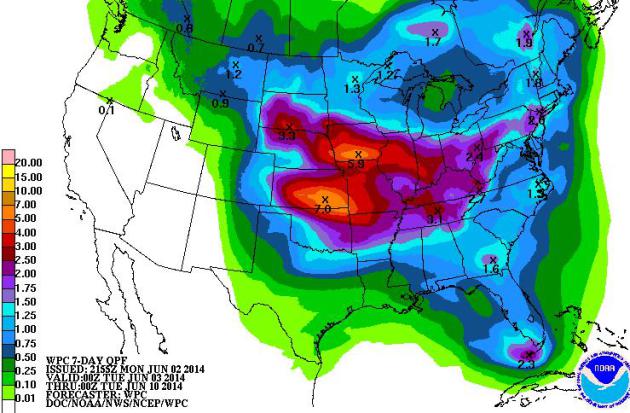
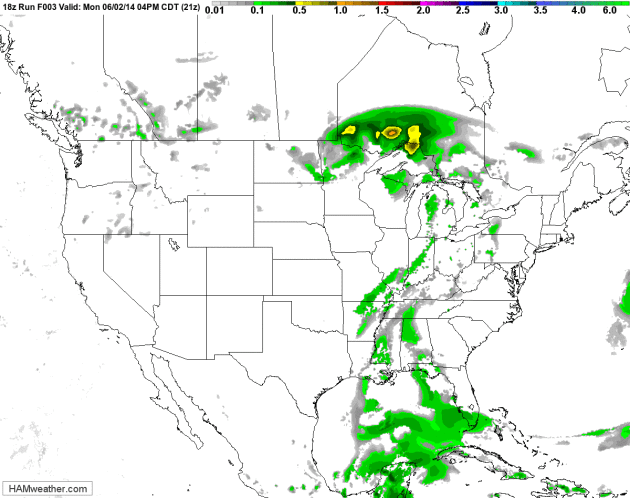
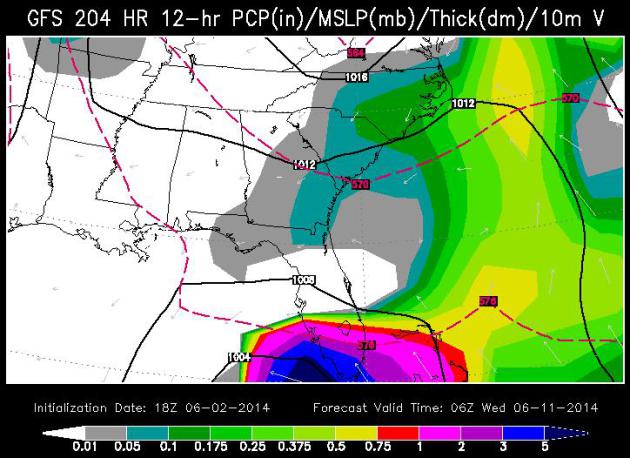
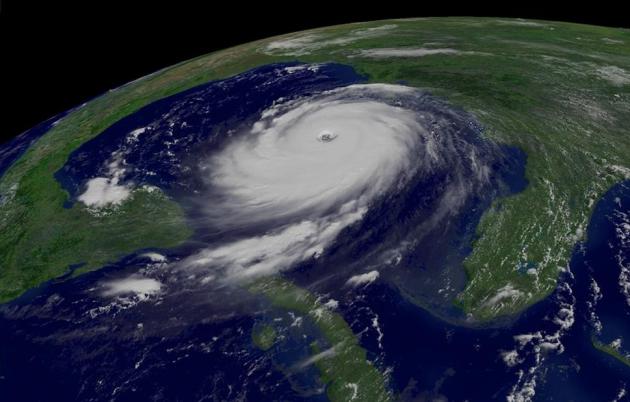
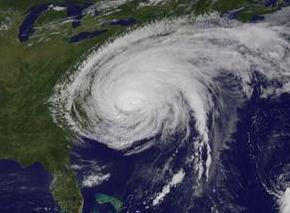


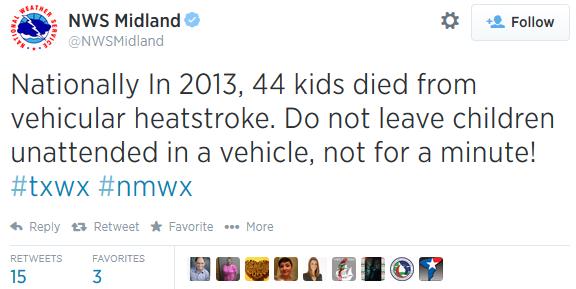



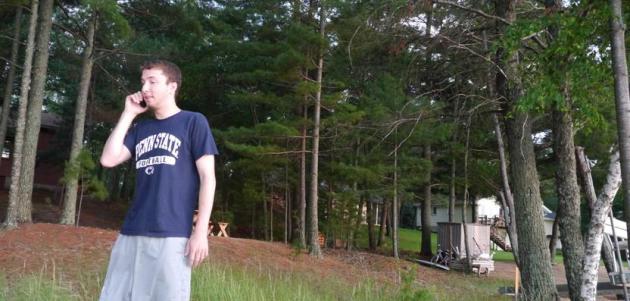



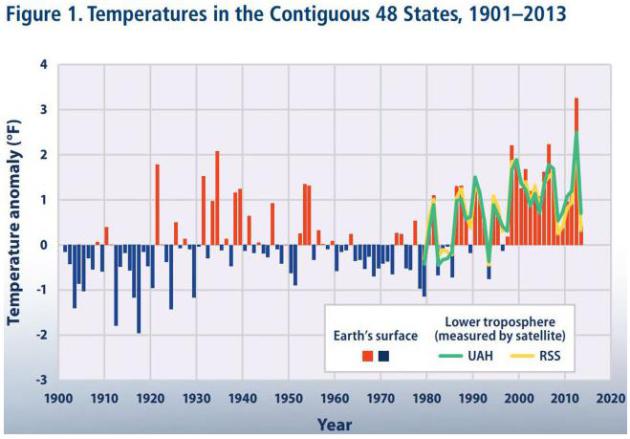



.jpg)


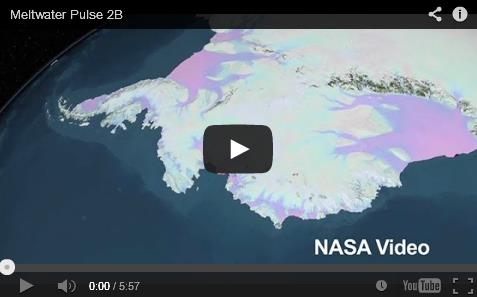
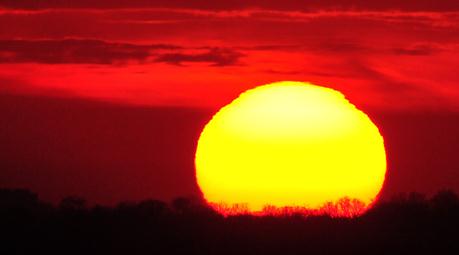
No comments:
Post a Comment